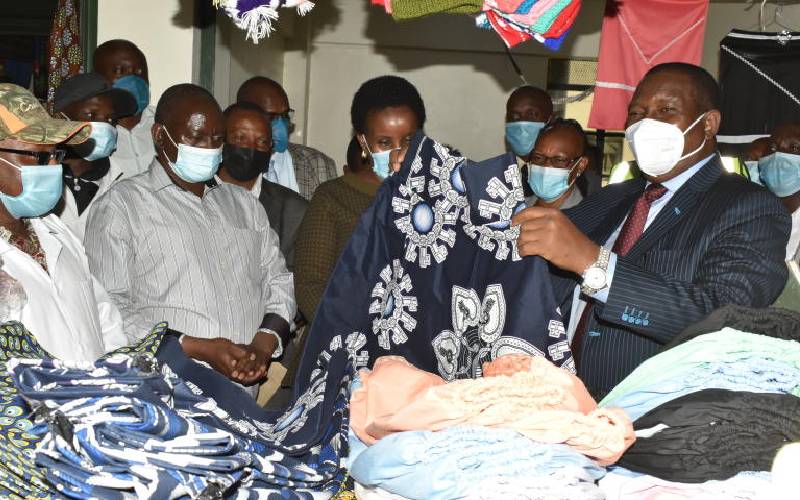×
The Standard e-Paper
Stay Informed, Even Offline

Nairobi Regional Commissioner James Kianda (right) samples some of the mitumba clothing sold in Gikomba market.[Samson Wire,Standard]
Every day, shoppers from different parts of Nairobi throng to the Kamukunji Market, which adjoins the city’s bustling Central Business District.